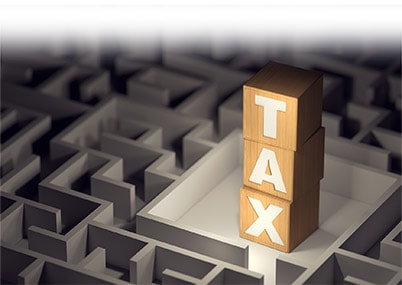Overview of the Current Indirect Taxes in GCC
 The Gulf Cooperation Council (GCC) has undergone significant economic reforms in recent years, with a particular focus on the introduction and development of indirect taxes. This article provides an overview of the current state of indirect taxes in the GCC region.
The Gulf Cooperation Council (GCC) has undergone significant economic reforms in recent years, with a particular focus on the introduction and development of indirect taxes. This article provides an overview of the current state of indirect taxes in the GCC region.
VAT Implementation:
The most notable indirect tax introduced in the GCC is the Value Added Tax (VAT). Several GCC member states, including Saudi Arabia, the United Arab Emirates (UAE), Bahrain, and Oman, have implemented VAT. This tax has been a crucial step towards diversifying revenue sources and reducing reliance on oil-based income.
VAT Rates and Scope
Each GCC country has its own VAT implementation, with varying tax rates and exempted goods and services. For instance, Saudi Arabia and the UAE initially set a standard VAT rate of 5%, while other countries may have different rates. The scope of VAT differs across nations, encompassing a wide array of goods and services, with specific exemptions and zero-rated categories.
Customs Duties
In addition to VAT, customs duties remain a significant component of indirect taxation in the GCC. These duties are levied on the import and export of goods, contributing to government revenue and regulating cross-border trade. The rates and regulations regarding customs duties may vary among member states.
Digital Services Tax
Some GCC countries have also explored or implemented taxes on digital services. This is in response to the evolving nature of the economy, where digital transactions and online services play a prominent role. These taxes aim to ensure that the digital economy contributes its fair share to national revenues.
UAE
The standard VAT rate of 5% for most of the goods and services. VAT is not applicable on supplies that are zero-rated which include exported supplies, precious metals, educational/healthcare services and related goods, international transportation and carriage, means of transport and related goods and services, rescue aircraft or vessels, first supply of residential or charitable buildings, crude oil and natural gas. While Exempt supplies include implicit financial services, subsequent supplies of residential buildings, bare land, and local passenger transport.
Excise Tax rates: 100% for tobacco, tobacco products, electronic smoking devices and energy drinks; and 50% on carbonated and sweetened drinks.
 Qatar
Qatar
Value-added tax (VAT)
Currently, Qatar imposes no VAT or sales tax on activities in Qatar. However, the introduction of VAT in Qatar under a common GCC framework is supposed to be introduced in the near future. The expected tax rate is 5%.
Customs duties
Customs duties are applied to goods with an origin outside the GCC nations, usually at a rate of 5%. Higher rates are for specific types of goods, such as tobacco products.
Excise taxes
Excise tax is applicable on the following goods at their respective tax rates:Tobacco products: 100%, Carbonated drinks: 50%, Energy drinks: 100%., Special purpose goods: 100%.
In November 2022, the Ministry of Finance issued Ministerial Decision No.12 2022 on Excise Tax refund giving a list of additional instances of refund of excise tax paid on excisable goods delivered for consumption but not consumed in Qatar.
Saudi Arabia
VAT
VAT Law came into force on 1 January 2018. A rate of 5% for most goods and services, with certain exceptions is imposed as VAT. Later on 1 July 2020 VAT rate was increased by the government to 15%.
Excise Tax
The Excise Tax Law became effective on 11 June 2017 in Saudi Arabia, with only tobacco products (at 100%), soft drinks (at 50%), and energy drinks (at 100%) as tax. To comply with the Saudi Arabian Excise Tax Law, manufacturers and importers need to register with the GAZT and the tax evaders will be imposed penalties.
Customs duties
Customs duties are imposed on imports in accordance with the Saudi Customs regulations. Penalties for smuggling goods vary from confiscation, and penalties to imprisonment and collections of customs duties.
Kuwait
There is no VAT and Excise Tax in Kuwait. whereas like other GCC states, Kuwait has approved a unified customs tariff of 5% on cost, insurance, and freight (CIF) invoice prices, subject to certain exceptions with a higher tariff on imports of tobacco and its derivatives, among other products.
Oman
VAT standard rate of 5% (reduced VAT rate 0%). Excise Tax rates with 100% on tobacco and related products, energy drinks, and special purpose goods, 50% on carbonated drinks.
Bahrain
The standard VAT rate in Bahrain is at 10%. The Tax rates of 100% for tobacco and related products and energy drinks; and 50% on soft drinks as Excise tax rate in Bahrain.
 Challenges and Developments:
Challenges and Developments:
While the introduction of indirect taxes in the GCC has been a milestone in economic reform, it has not been without challenges. Businesses, especially small and medium enterprises (SMEs), have had to adapt to new compliance requirements. Additionally, ongoing developments and refinements in tax laws may pose challenges for businesses seeking clarity and consistency in their operations.
Conclusion:
The implementation of indirect taxes, particularly VAT, marks a significant shift in the economic landscape of the GCC. As member states continue to refine their tax systems, businesses and individuals alike must stay abreast of these changes to ensure compliance and navigate the evolving fiscal environment in the region.
 English
English
 عربي
عربي Русский
Русский 官话
官话 português
português
 Türk
Türk 





.jpg&w=120&h=80&zc=1)


.jpg&w=120&h=80&zc=1)
